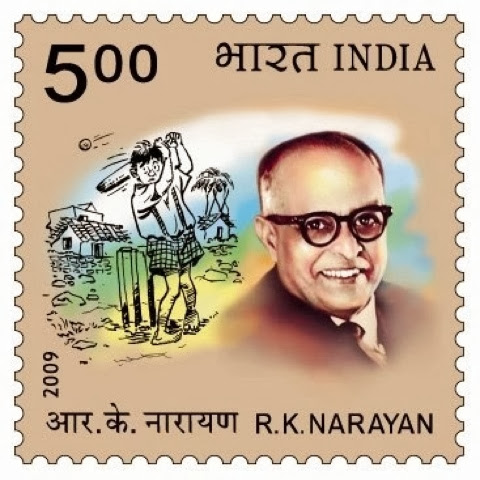R. K. Narayan should have won the Nobel Prize. I have, I think, read and posted on all of novels and a number of his short stories. Many of his works of fiction are set in the imaginary community of Malgudi, India. Narayan wrote in English, publishing many of his stories originally in The Hindu. There was a long running TV series (in Hindu) based on his stories, Malguidi Days. You can watch many of the episodes, including this story, on Youtube.
"Engine Troubles" opens as a traveling carnival has stopped for a few days in Malguidi. Narayan does a very good job in just a few paragraphs letting get a feel for the impact of the carnival. The story is told in the first person and it was great when our narrator won a lottery. The prize was a road engine. If you are like me, you might not be sure what a road engine is but it is not for sure a car or a truck. It is a steam roller used in paving.
Once he wins his troubles really begins. He has to pay rent to the city to leave it on the vehicle, nobody can be found who knows how to drive it. He thinks maybe he can sell it but nobody seems to want it. A friend offers to let him store it for free so he hires an elephant and fifty porters to move this very heavy road engine. This goes terrible wrong, the elephant injures a knee and a wall gets wrecked. His wife is getting mad and may leave him because of all the expenses. Things seem like they just keep getting worse for him.
The story ends well. "Engine Troubles" is not one of his more famous stories but it was a lot of fun to read. I read this story in an excellent anthology of Narayan's short stories edited and introduced by Jhumpa Lahari. Lahari, as do I, considers Narayan one of the twentieth century masters of the short story.







No comments:
Post a Comment